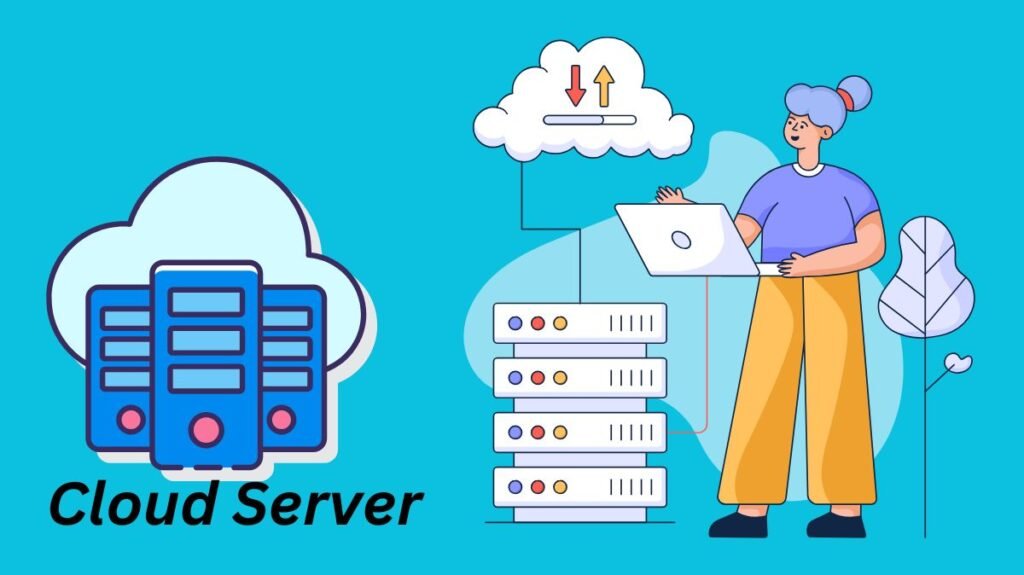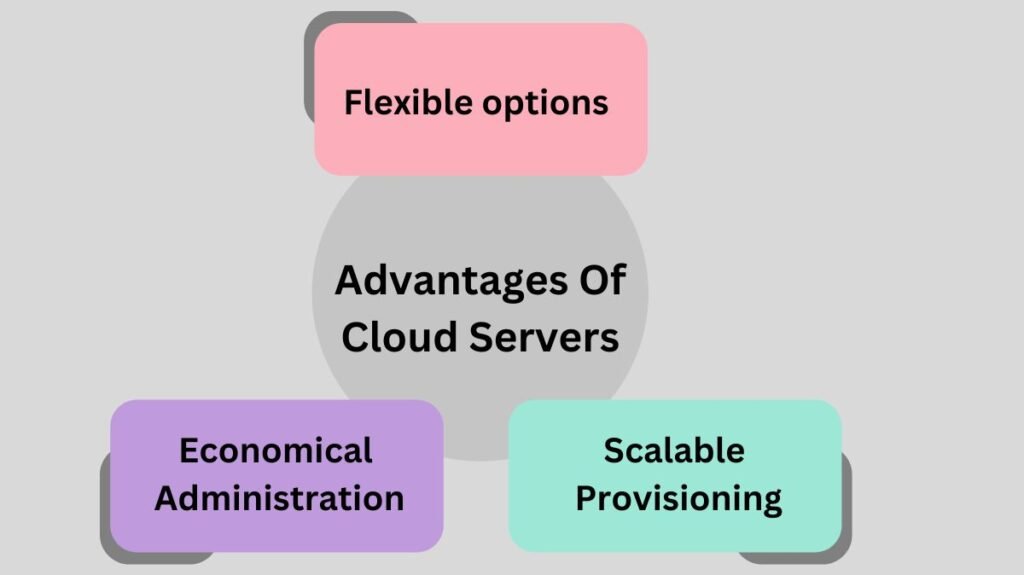Contents [hide]
What Is A Cloud Server?

Delivering apps, processing data, or storing data, a cloud server is a robust physical or virtual infrastructure that is hosted remotely by a cloud service provider.
A single physical (bare metal) server can be divided into several virtual servers using virtualization software to construct certain cloud servers. Cloud service providers make virtual or bare metal servers available to clients through the infrastructure-as-a-service (IaaS) concept.
How Does Cloud Server Works?
A bare-metal server, also known as a physical server, is a system that resembles a box and contains memory, storage, a CPU, and circuits and chips. It needs electricity to operate and takes up physical space.
A cloud server, virtual server, cloud instance, or virtual machine (VM), on the other hand, is only software. However, its behavior is identical to that of the actual machine. Any other device or connection sees the cloud server as a physical server as well.
Businesses use their own physical servers to operate virtual machines. Cloud servers, on the other hand, are entirely virtual computers that are built and run by cloud providers. The underlying infrastructure and hardware are owned and operated by the cloud provider.
Virtualization is the foundation of a large portion of cloud computing, including cloud servers and other services provided by cloud service providers.
The use of virtualization
The process of building and operating a virtual instance of an actual IT resource is known as virtualization. The underlying computer resources can be shared by several virtual servers operating on a single physical system.
It is not necessary to confine all of the hardware to a single operating system and configuration environment when using virtualization. Alternatively, you may run various workloads, programs, and operating systems in several completely separate virtual environments. More resource sharing is made possible by isolated virtual servers. They are frequently more economical for companies.
Supplying
In order to deploy virtual machines (VMs), cloud server provisioning involves allocating and configuring computing resources inside a cloud environment. APIs are used to provision cloud servers. You may remotely establish, configure, remove, and manage your cloud servers to the APIs.
Usually, this procedure begins with the specification of the needed server characteristics, including CPU, memory, storage, and network capabilities. The operating system and any installed apps are also specified by you.
After you specify the criteria, the cloud platform’s automated tools create the cloud servers, link them to the relevant resources, and set up networking and security. This makes it possible to quickly and scalablely deploy computer resources according to certain requirements.
A Linux-based operating system is usually preinstalled on cloud servers. The job at hand determines which server type is best. Certain workloads are better suited for particular server configurations and kinds.
Advantages Of Cloud Servers

Cloud servers are vital to cloud computing because they eliminate the need to buy, run, and maintain physical servers. You can use them alone or with your server infrastructure. It has never been simpler or more customizable to launch servers in the cloud. Today, a variety of cloud server types are accessible for both personal and corporate usage.
Flexible options
Regardless of the underlying hardware, cloud servers allow you to set up nearly any kind of server design. This implies that you may select cloud servers according to criteria such as networking capabilities, machine learning workloads, or graphics capabilities.
Because you may also select the geographic area in which the cloud server is situated, achieving compliance goals is simple. In the cloud computing environment, you may even select the geographical zone.
Economical administration
In the past, purchasing physical servers was expensive and necessitated extensive long-term planning. Investing in a physical server required years of work. These days, you may pay as low as one cent per second to rent a cloud server on demand. At any given moment, you can rent many cloud servers for various workloads without being locked into any billing schedules.
Additionally, there are no continuous maintenance expenses for cloud servers. The operating system, settings, and security upgrades are just a few of the administration responsibilities that the cloud provider may handle. Internal management is no longer necessary as a result.
Furthermore, cloud servers don’t deteriorate over time because they are specified in software. Additionally, this eliminates any decommissioning expenses that would arise from buying and then retiring hardware-based servers.
Scalable provisioning
Scalable cloud servers are common. You may configure the server type or number to automatically increase if a server runs out of power or space. This compensates for the increased workload. Alternatively, you can automatically reduce to make room for lesser tasks.
Additionally, cloud servers have built-in failover diversions and sophisticated load balancing, among other features that assist guarantee high availability.
Use Cases For A Cloud Server
Any kind of workload may be executed on a cloud server. Here are a few instances:
- Enterprise software includes tools for customer relationship management (CRM) and human resources (HR).
- Applications for customers, including document management and smartphone apps.
- Advanced graphics processing for games and streaming videos.
- Applications of scientific modeling.
- Databases that are altered by incoming queries.
- Websites and web apps using specialized web servers that use HTTP communications.
- Workloads related to machine learning (ML) that need a lot of processing power to train ML models.
- For all contemporary applications, a cloud server offers flexibility and scalability. One can be used for streaming, analytics, microservices, and artificial intelligence (AI).

